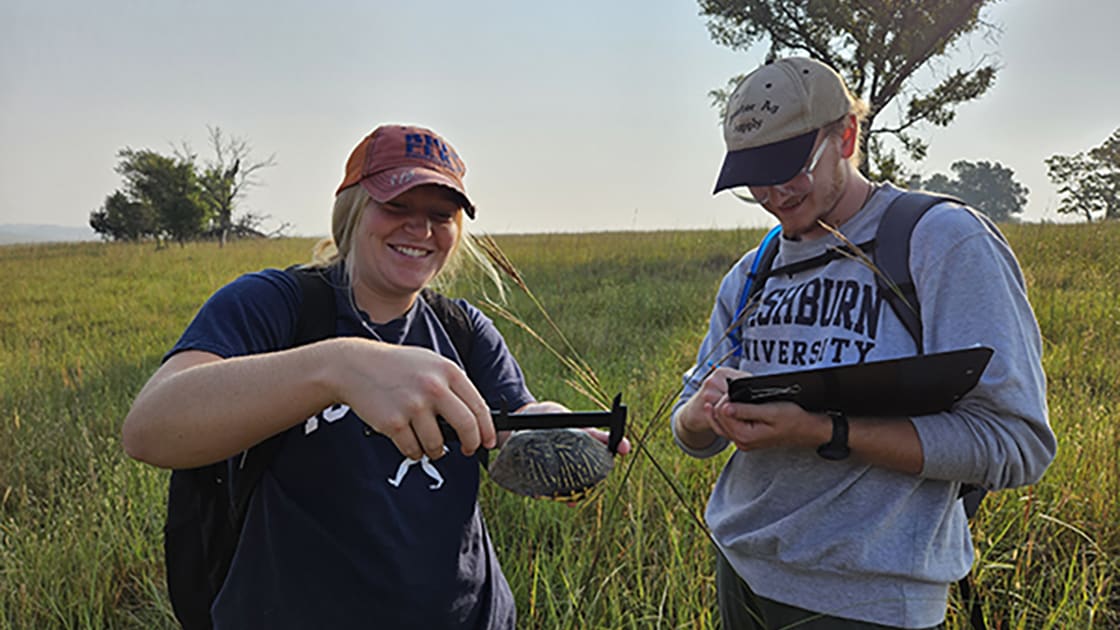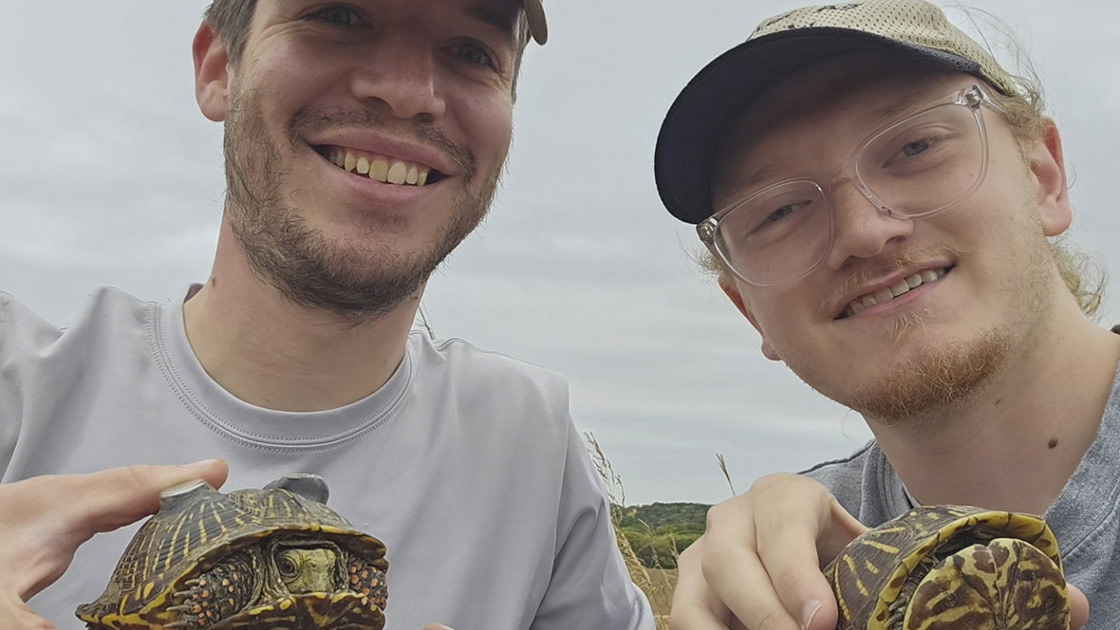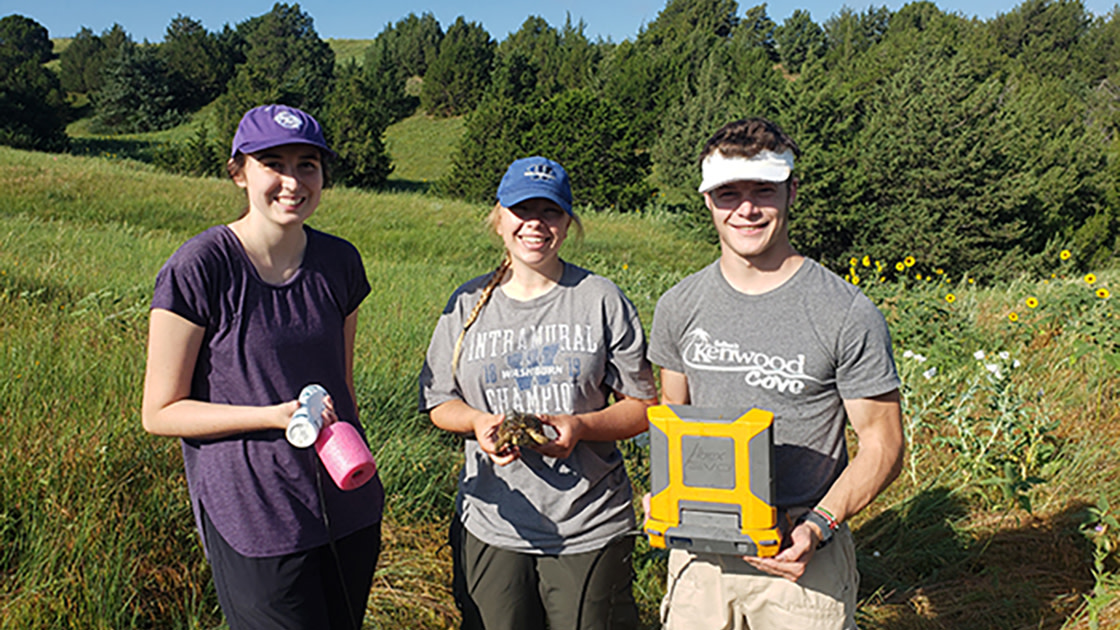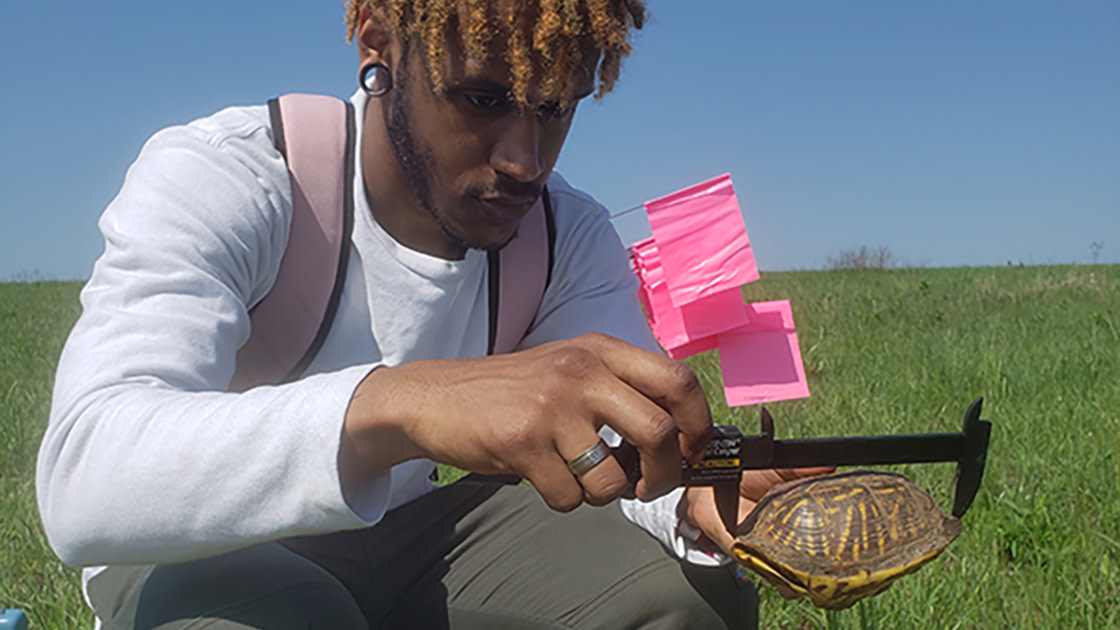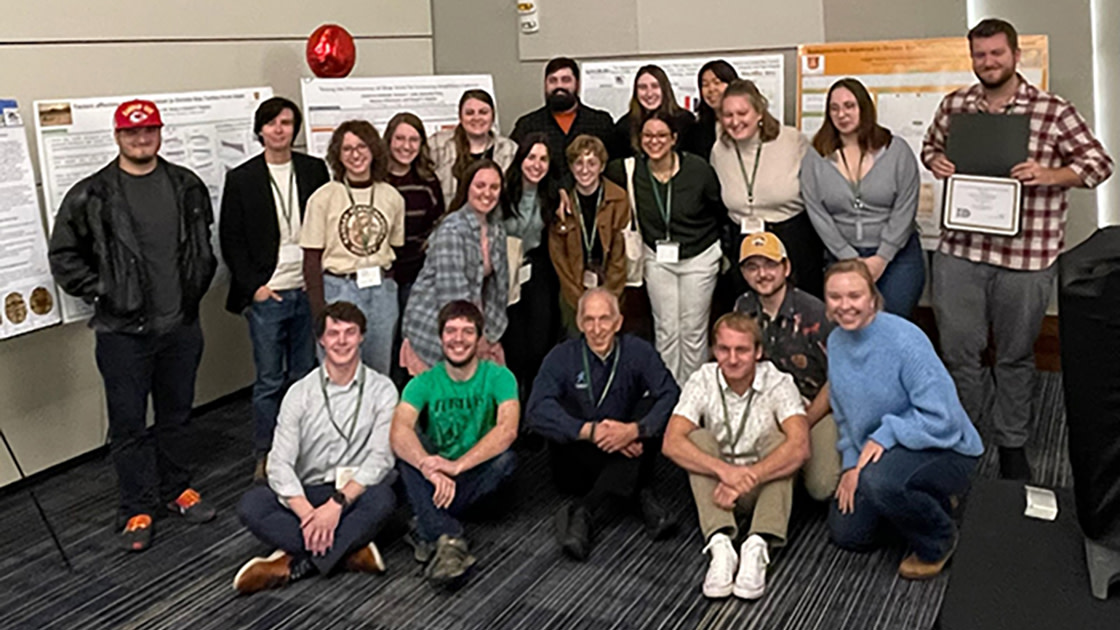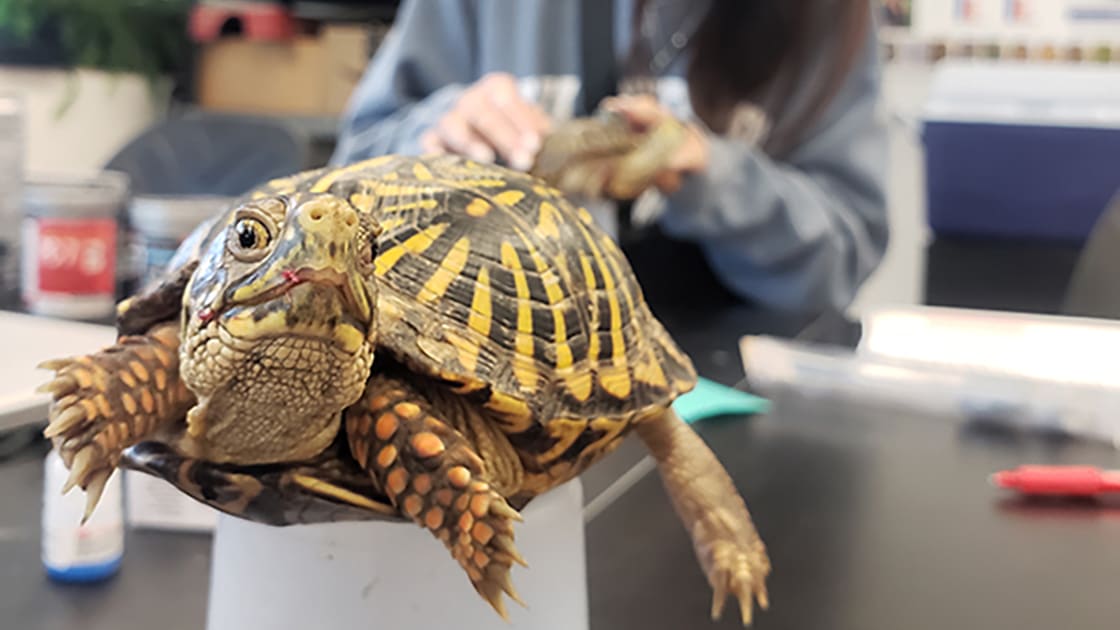
Donations to the Adopt-A-Turtle program will primarily help pay for radio transmitters ($195 apiece) to enable us to continually track individual turtles over their lifetime. Transmitters need to be replaced each year and some of our turtles have been in our study since 2006. Pretty soon some of the specific individual turtles we research will be older than the students studying them! Donations to the program will also be used to purchase radio telemetry equipment (such as radio receivers and Yagi antennas needed to locate the transmitter) and student housing at a remote field station in western Nebraska. Last year, eight different lived at this field station for nine weeks over the summer, and we are hoping to provide this opportunity again for students in 2024. Lastly, with so many students involved, our equipment is heavily and continually used throughout the year in the field, so we also incur substantial refurbishment costs to maintain our equipment ensure optimal function.
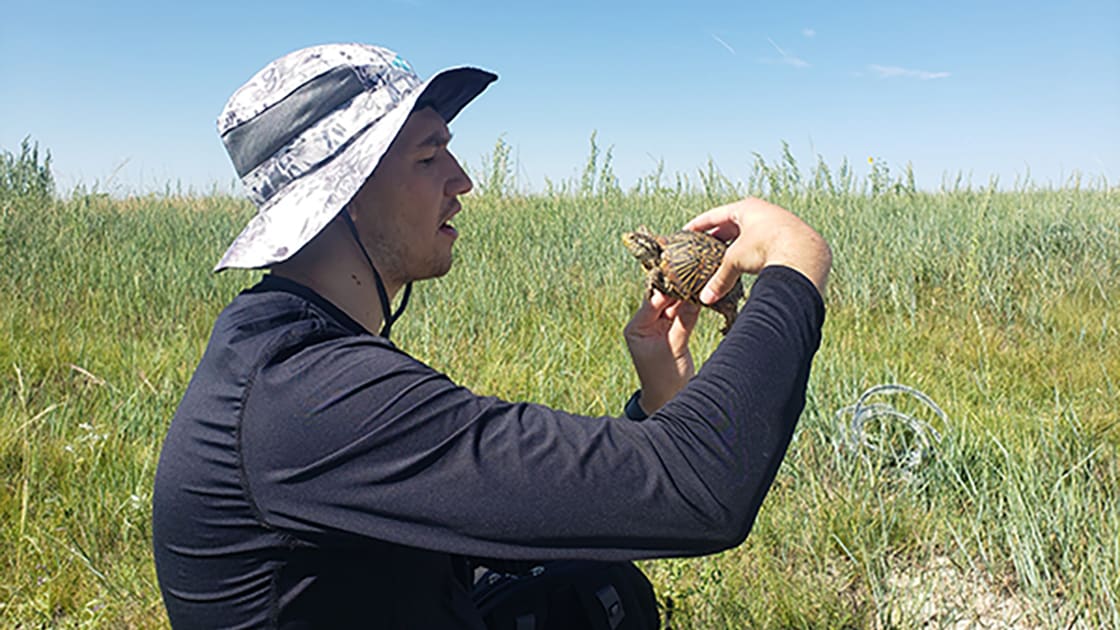
Our biggest goal for the Adopt-A-Turtle Day of Giving event in 2024 is to raise enough money to continue to purchase transmitters for our adult turtles while also having the capacity to purchase tiny transmitters for juvenile turtles, a project we trialed in 2023 but hope to expand in 2024 now that we know it is both possible and extremely informative for our overall research endeavors.
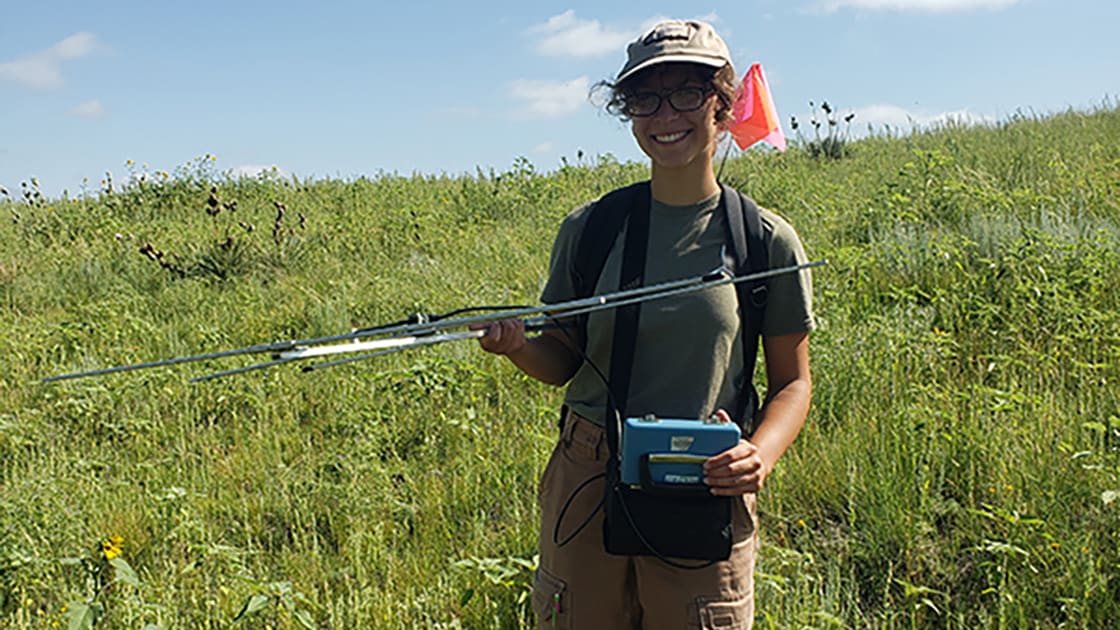
In 2023, the Washburn Turtle Research Team had over 30 students actively engaged in the spring, summer and/or fall semester research. We found over 250 unique box turtles across our three primary field sites and tracked over 110 turtles beginning in April/May and ending just before Thanksgiving. Twenty-five students have attended and presented at several conferences specifically this past year including Washburn’s Day of Transformation, Apeiron and outside of Washburn at the Kansas Herpetological Society Meetings, K-INBRE, Kansas Academy of Sciences and even more broadly at the Midwest Ecology and Evolution Conference in Louisville, Kentucky and the North American Box Turtle Conservation Workshop in Gainesville, Georgia. Students have been recognized for their work by receiving student research and travel grants and conference awards in addition to many having authorship on three different peer-reviewed published papers.
Donors to the Adopt-A-Turtle program receive a triannual newsletter highlighting student and research achievements during the turtles’ active season. Donors of at least $100 will also receive an official certificate of adoption for a unique ornate box turtle that is being researched by students and Assistant Prof. Benjamin Reed. Updates on your adopted turtle can also be provided upon request. Aside from using the equipment for students enrolled in biology classes and for research, the equipment and turtles with radio transmitters are also used for outreach events to help increase public awareness for the ecological importance of these magnificent but declining populations of turtles while also providing kids and adults alike the opportunity to learn and engage in citizen science events such as doing radio telemetry to locate animals.
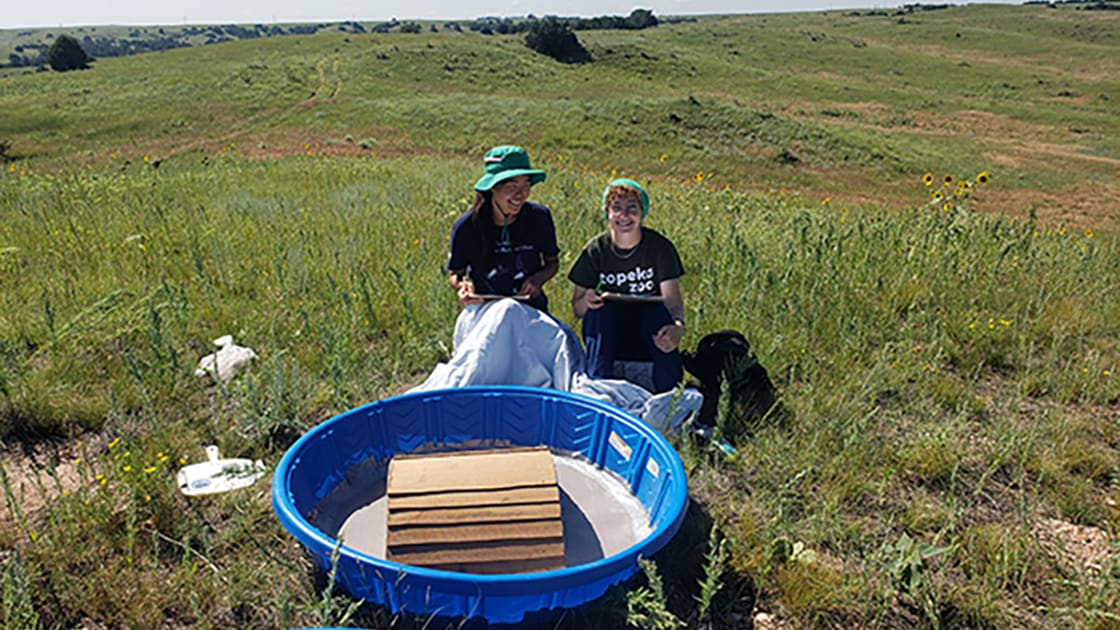
Reed and his students present at schools, zoos, after-school clubs and summer camps. The overall goal of his box turtle program at Washburn University is to create opportunities for more hands-on and engaging classroom and research experiences for students while also building public awareness and appreciation for box turtles, which should ultimately help protect them for future generations to enjoy and continue to learn from.
